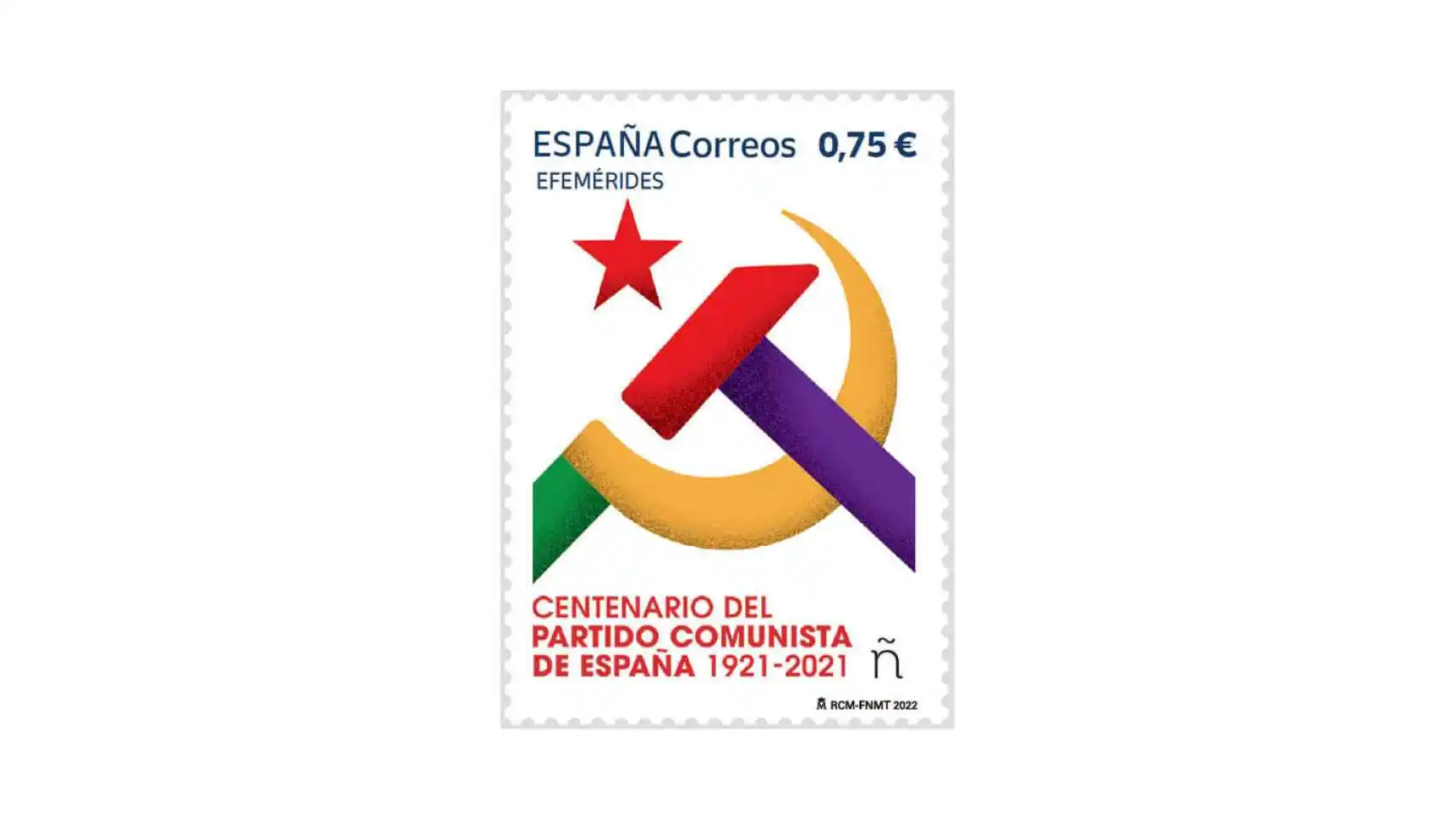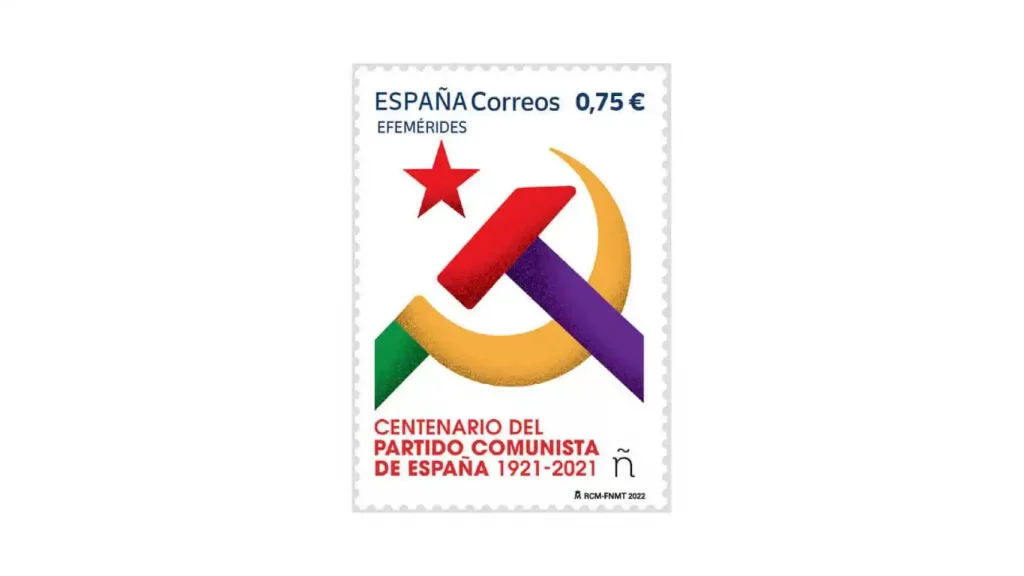
THE STREISAND effect is the name given to the phenomenon where an attempt to hide or censor something has the opposite result, instead drawing more attention to that thing. It would appear that a bid in Spain to ban a commemorative stamp for the centenary of the Spanish Communist Party (PCE) has done just that.
On November 12 a judge in Madrid suspended the emission of the stamp after a lawsuit was filed by an organisation called Abogados Cristianos (Christian Lawyers), who argued that it was ‘intolerable’ for a public administration such as the Correos post office to ‘promote an ideology’.
The design of the stamp features the hammer, sickle and star and the words ‘Centenary of the Communist Party of Spain 1921-2021’.
Originally the post office was planning to print 135,000 of the stamps, but given the high-profile controversy over the bid to ban it, Correos has increased the run to 435,000 due to increased demand.
The change was published on Monday in Spain’s Official State Gazette (BOE), with the price of the stamp, €0.75, staying the same.
Seven days after the Madrid judge suspended the emission of the stamp, she allowed it to go ahead on the basis that Correos had ‘followed the legally established procedure’ for such an emission.
A number of right-wing political parties had also objected to the decision of Correos to publish such a stamp, calling for the head of the public organisation, Juan Manuel Serrano, to quit.
Rafael Hernando, a senator for the conservative Popular Party (PP), said the stamp was ‘shameful’, adding that ‘communism, nazism and fascism are totalitarian ideologies condemned by the European Parliament’ and that ‘caused millions of deaths’.
Far-right Vox, meanwhile, decried the history of the PCE as one of ‘violence’, ‘hate and totalitarianism’, calling for an alternative stamp to commemorate the 86th anniversary of the massacre by Republican forces at Paracuellos in Madrid during the Spanish Civil War.
The Correos website, however, points to the fact that the PCE ‘became the engine driving the forces that fought for democracy’ during the dictatorship of General Francisco Franco, despite being banned and having to do so from hiding. The general secretary of Spain’s Communist Party, Enrique Santiago, took the criticism to mean that ‘there is no democratic right in Spain’, given that they ‘cannot stand democracy’, nor the fact that the PCE ‘has been on the front line to defend it every time that oligarchs’ have tried to ‘do away with it’, according to comments reported by Spanish online daily El Español.
Read more:

